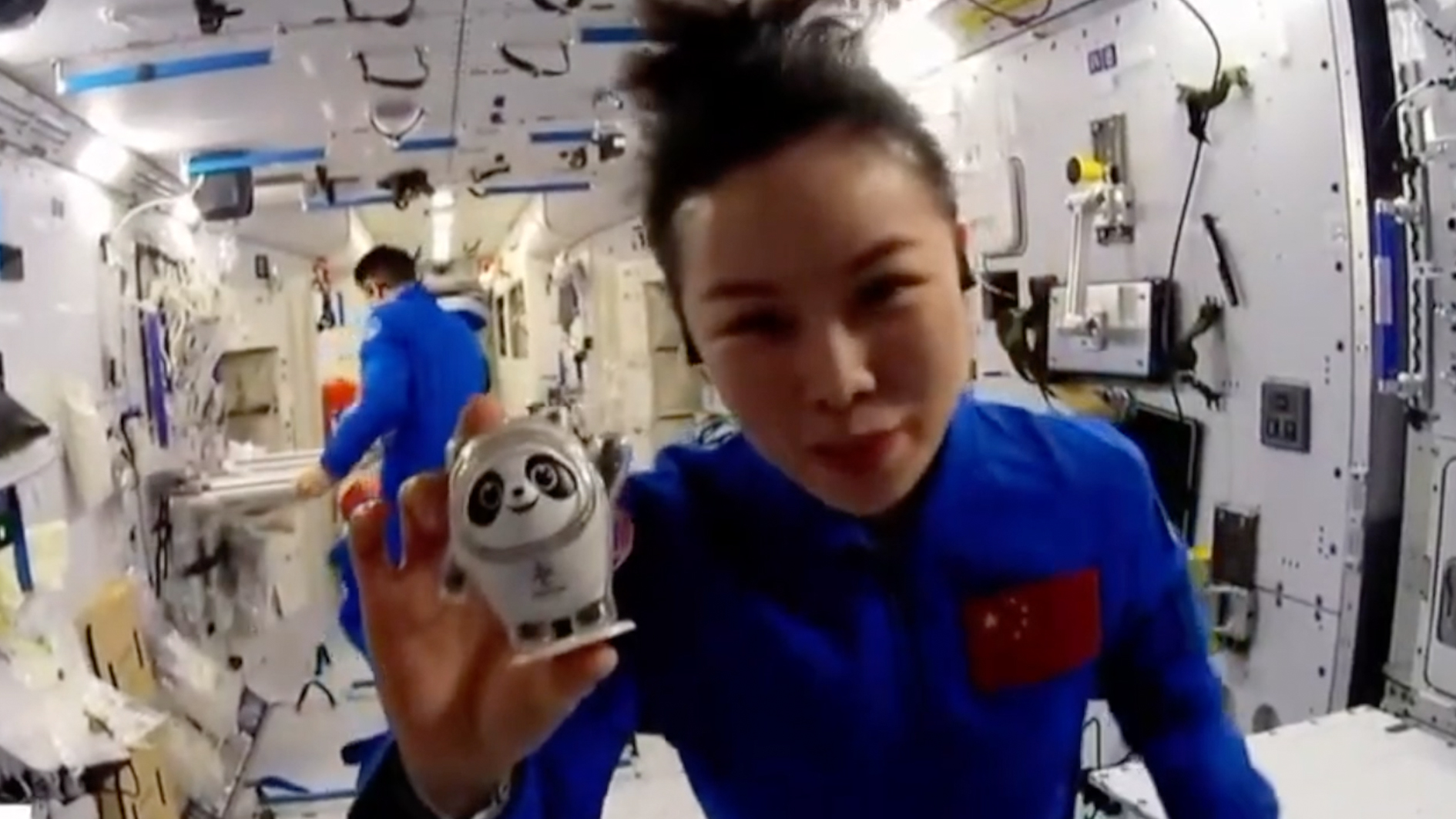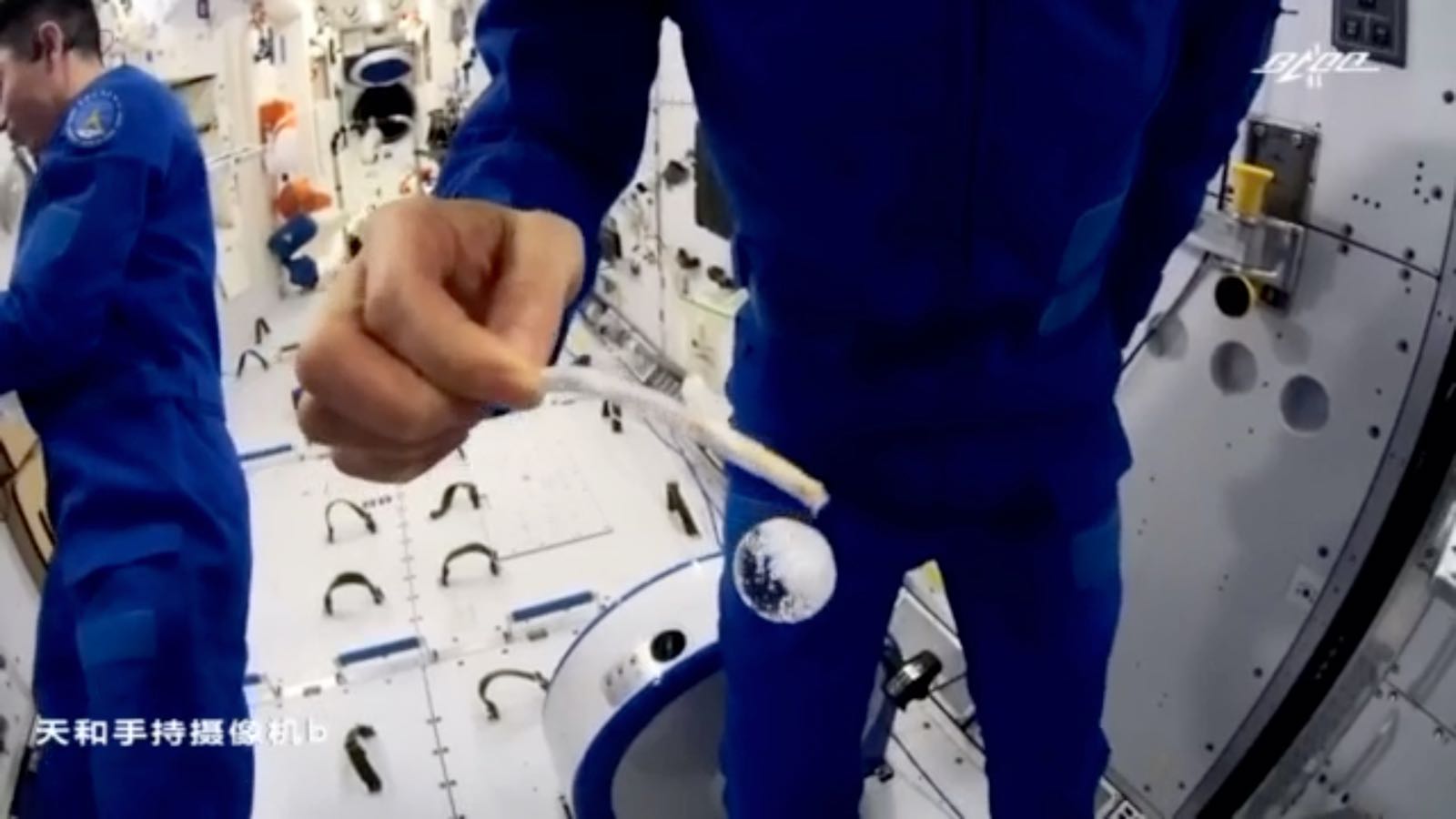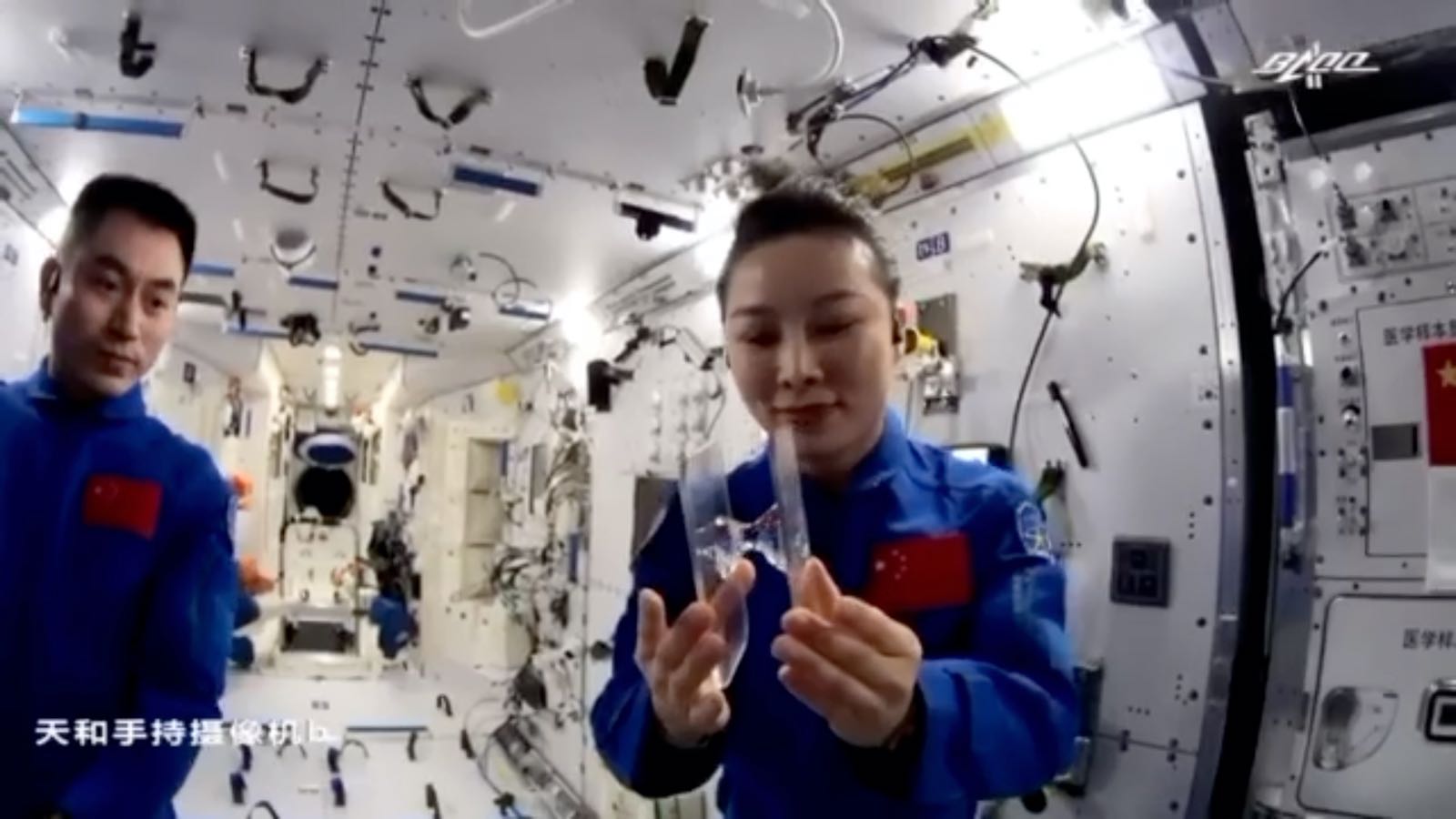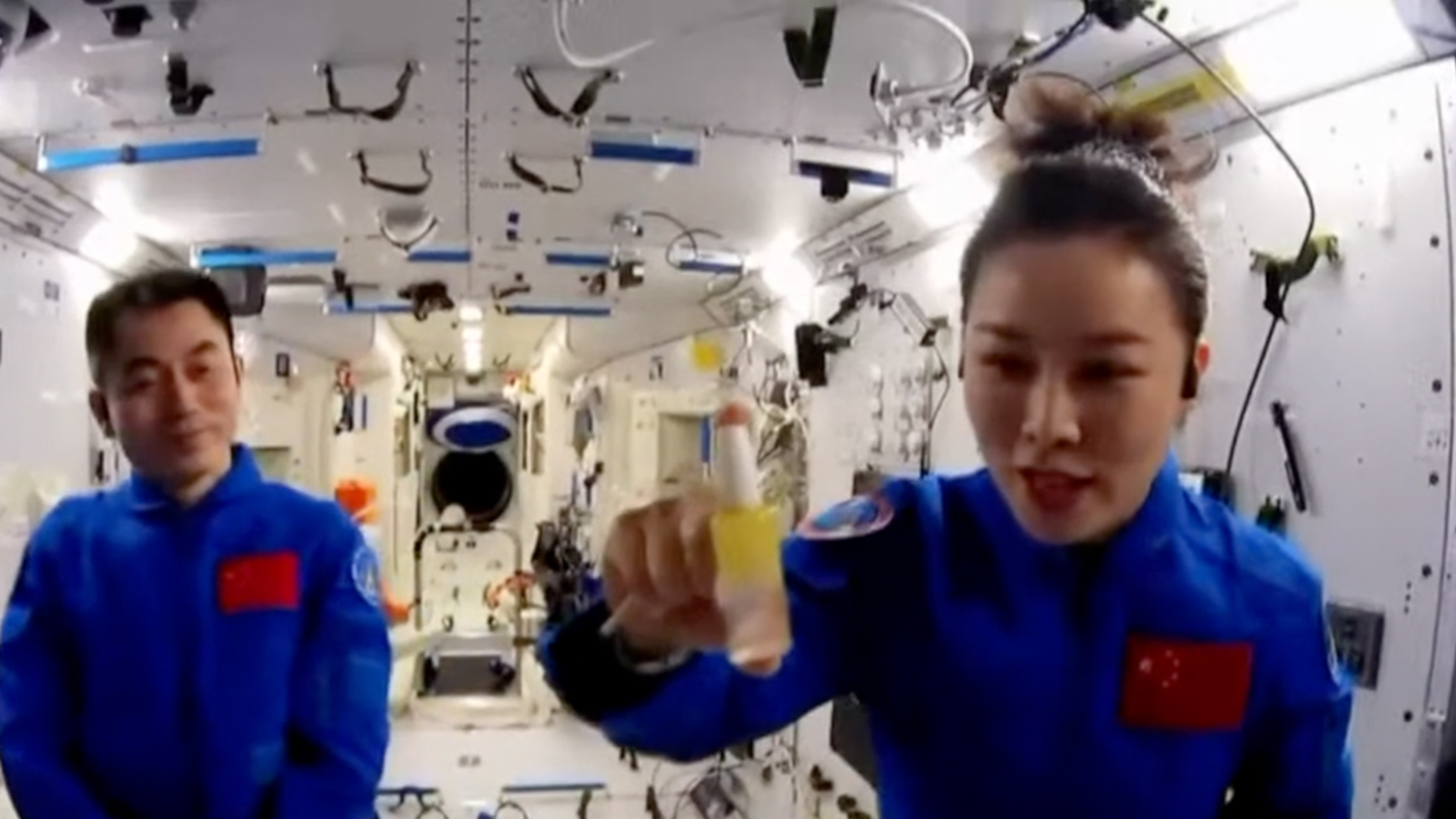01:46

Taikonauts in the China Space Station (CSS) hosted their second space class for youngsters on Earth.
The live-streamed educational session is a part of China's effort to take full advantage of the CSS with an aim to inspire young minds to pursue science.
The three taikonauts at the space station, including commander Nie Haisheng, first female CSS taikonaut Wang Yaping and Ye Guangfu participated in the session on Wednesday.
This is the third such event the country has hosted from space and the second one from the CSS. The first class in space was held in the Shenzhou-10 spacecraft, before the CSS was built.
For the lecture, three classrooms housed local students in Beijing, the Tibet Autonomous Region and the Xinjiang Uygur Autonomous Region where the students could interact with astronauts in real time. The lecture was also broadcast on national TV to reach a wider audience.
The lecture covered a series of experiments that demonstrated the crystallization process, surface tension, separating water and oil, and momentum in space. Multiple scientific equipment currently at the station were also displayed during the lecture.
01:26

Common phenomena turn different in space
China space station provides an invaluable platform for scientists to conduct experiments in space, which can also trigger youngsters' interest in scientific research, experts say.
"The CSS provides us a long-term, stable weightless environment to better serve scientific exploration although we could imitate a weightless environment on Earth to conduct experiments," said Zhang Lu, a researcher at the Technology and Engineering Center for Space Utilization under the Chinese Academy of Sciences, who led the space experiment design.
Three taikonauts at the CSS live streamed a science class for students on Earth on Wednesday, the second session for the current mission.
"We are hoping that youngsters could see how common phenomenon in experiments with common materials could change in different environments," said Chen Zheng, associate professor in physics at Beijing Jiaotong University.
"It would be great if we could ignite the youngsters' curiosity and passion for science."
The astronauts demonstrated how to separate a mix of water and oil in the weightless environment — an effortless task on Earth as gravity helps to separate the two liquids naturally. In the demonstration, taikonaut Ye separated the two by spinning the mix, using the influence of centrifugal force.
The taikonauts also tasked popular Winter Olympics 2022 mascot figurine Bing Dwen Dwen to demonstrate how an object would move in a weightless environment.
01:35

Huang Weifen, chief designer of the Astronaut Center of China, told China Media Group that they sent some packages during Shenzhou-13's mission, the contents of which were not revealed to the taikonauts.
"We have taken the taikonauts' psychological health into consideration. Those 'blind boxes' can give them some excitement as they stayed in space for so long," Huang said. Bing Dwen Dwen was in one of the blind boxes.
The microgravity environment in space also provided an ideal condition to conduct some serious life science experiments. During the stay, the Shenzhou-13 mission completed over 20 scientific experiments.
"The Shenzhou-13 crew has established a long-term cell culture system and cell models for the first time," according to Li Yinghui, deputy chief designer of China's manned space program astronaut system. Li said, "They made several world's firsts by completing innovative life science researches".
03:59

More science education events ahead
Students from Beijing to Xinjiang asked questions during the lecture, ranging from how teardrops look in space to whether water could be boiled in space.
Huang said a growing number of science education-related events will be planned as two more experiment modules are slated to be sent to the space station.
China's space industry has a busy schedule this year as the nation plans to launch lab modules Mengtian and Wentian, two cargo spacecraft and two crewed spaceships. It also plans to welcome international astronauts for cooperation.
"We will carry out more science experiments in the future and bring more scientists to the station," Wang said when answering a question from a student. "And you're welcome here too."

